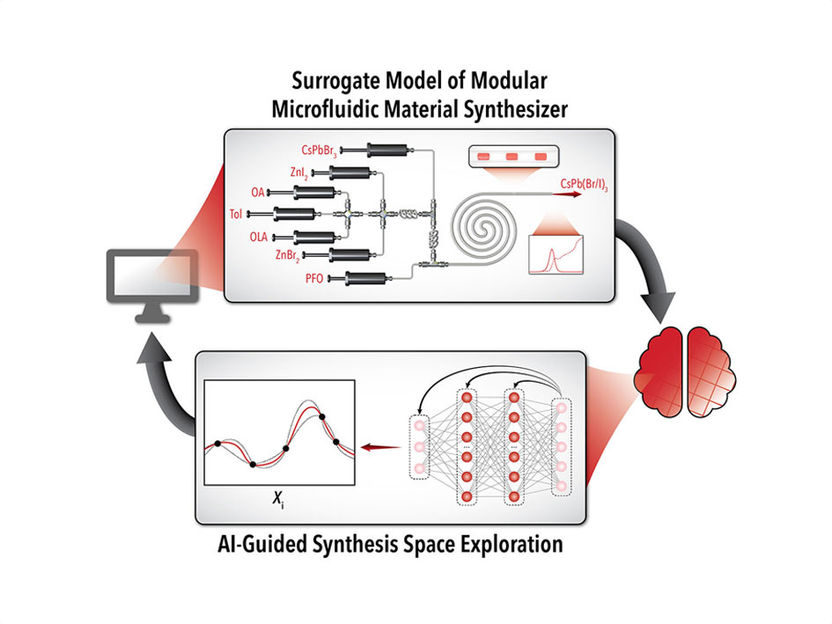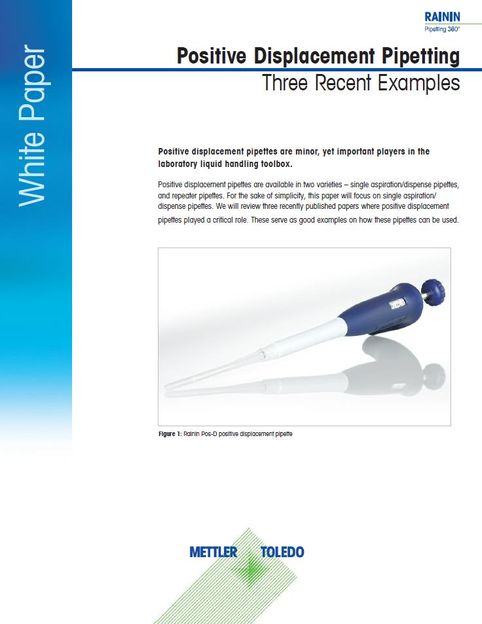Virtual lab finds the right AI tool for each chemistry problem
"Autonomous systems have tremendous potential for accelerating chemical R&D and manufacturing"
Having the right tool for the job makes the job a lot easier, less expensive and faster. Chemical engineering researchers have now developed a virtual laboratory that can be used to determine the artificial intelligence (AI) tools best suited for addressing various chemical synthesis challenges in flow chemistry systems.

North Carolina State University
"Autonomous systems have tremendous potential for accelerating chemical R&D and manufacturing, but they are not in widespread use yet," says Milad Abolhasani, corresponding author of a paper on the work and an assistant professor of chemical engineering at North Carolina State University. "These systems face two kinds of challenges: finding or developing the right hardware for reliable, reproducible automated synthesis; and finding or developing the right 'brain,' or AI-guided decision-making algorithm, for efficiently determining the best way of synthesizing the desired material. My team focused on the hardware challenges with our Artificial Chemist project. The work we're publishing now is focused on addressing the autonomous decision-making challenges."
Abolhasani's work stems from his observation that: A) there are a lot of different AI tools available; B) it's not always clear which tool is the best fit for any given material synthesis problem; and C) whichever tool is selected, it will always need to be fine-tuned based on the chemistry problem.
"Recently, there has been increased interest in using off-the-shelf AI programs for modeling and optimization of chemical reactions," Abolhasani says. "But those off-the-shelf AI techniques are not one-size-fits-all - they're not all equally good at solving whatever material synthesis problem you want to address.
"Ultimately, we want to find the best AI model architecture for determining the best material formulation that gives you the target properties you are looking for. Not just identifying the best material, but the best way of producing that material so that it has the best possible combination of characteristics. And the best AI model architecture is going to vary depending on the material and the complexity of the challenge."
So Abolhasani and his collaborators took an AI-driven approach to finding the best AI tool for each material synthesis problem.
"It would be impossible to do the millions of experiments necessary to determine which AI tools do the best job for addressing different kinds of material synthesis problems," Abolhasani says. "So, we wanted a model that simulates a real-world microfluidic experimental platform to effectively run those millions of experiments for us."
The researchers ran 1,000 experiments using their automated Artificial Chemist platform and used those experimental data points to train the virtual experimental platform.
For the work reported in the new paper, the virtual laboratory simulated more than 600,000 experiments, assessing more than 150 AI-guided decision-making strategies. If those experiments were run in the real world, even using automated systems and microscale volumes of material, the experiments would have taken 7.5 years of continuous robotic operation and 400 liters of reagents. Abolhasani's team did it in about a month.
"We've effectively trained our virtual lab to choose the best AI tools for each material synthesis challenge," Abolhasani says. "And those tools become more efficient every time we use them, helping us resolve increasingly complex challenges in chemistry and chemical engineering. Ultimately, we think that these AI-driven tools will be able to operate quickly enough to adjust operations as needed in real time."
Original publication
Other news from the department science

Get the chemical industry in your inbox
By submitting this form you agree that LUMITOS AG will send you the newsletter(s) selected above by email. Your data will not be passed on to third parties. Your data will be stored and processed in accordance with our data protection regulations. LUMITOS may contact you by email for the purpose of advertising or market and opinion surveys. You can revoke your consent at any time without giving reasons to LUMITOS AG, Ernst-Augustin-Str. 2, 12489 Berlin, Germany or by e-mail at revoke@lumitos.com with effect for the future. In addition, each email contains a link to unsubscribe from the corresponding newsletter.
Most read news
More news from our other portals
See the theme worlds for related content
Topic world Synthesis
Chemical synthesis is at the heart of modern chemistry and enables the targeted production of molecules with specific properties. By combining starting materials in defined reaction conditions, chemists can create a wide range of compounds, from simple molecules to complex active ingredients.

Topic world Synthesis
Chemical synthesis is at the heart of modern chemistry and enables the targeted production of molecules with specific properties. By combining starting materials in defined reaction conditions, chemists can create a wide range of compounds, from simple molecules to complex active ingredients.
Topic world Digitalization in the laboratory
The topic world Digitalization in the lab presents innovations and trends from digital data systems (ELN, LIMS) to laboratory robots and networked devices (IoT) to AI and machine learning.

Topic world Digitalization in the laboratory
The topic world Digitalization in the lab presents innovations and trends from digital data systems (ELN, LIMS) to laboratory robots and networked devices (IoT) to AI and machine learning.
Last viewed contents
BASF, CogniTek sign joint development agreement for creation of high efficiency heat exchange utilizing ionic liquids
Extremely_high_frequency
Jadeitite
Porphyroclast
Argillaceous_schist

Step by step to the end product through enzyme catalysis - Enzymes from microorganisms can produce valuable chemical substances. In a cascade, they can do that even if they need different environmental conditions





























































